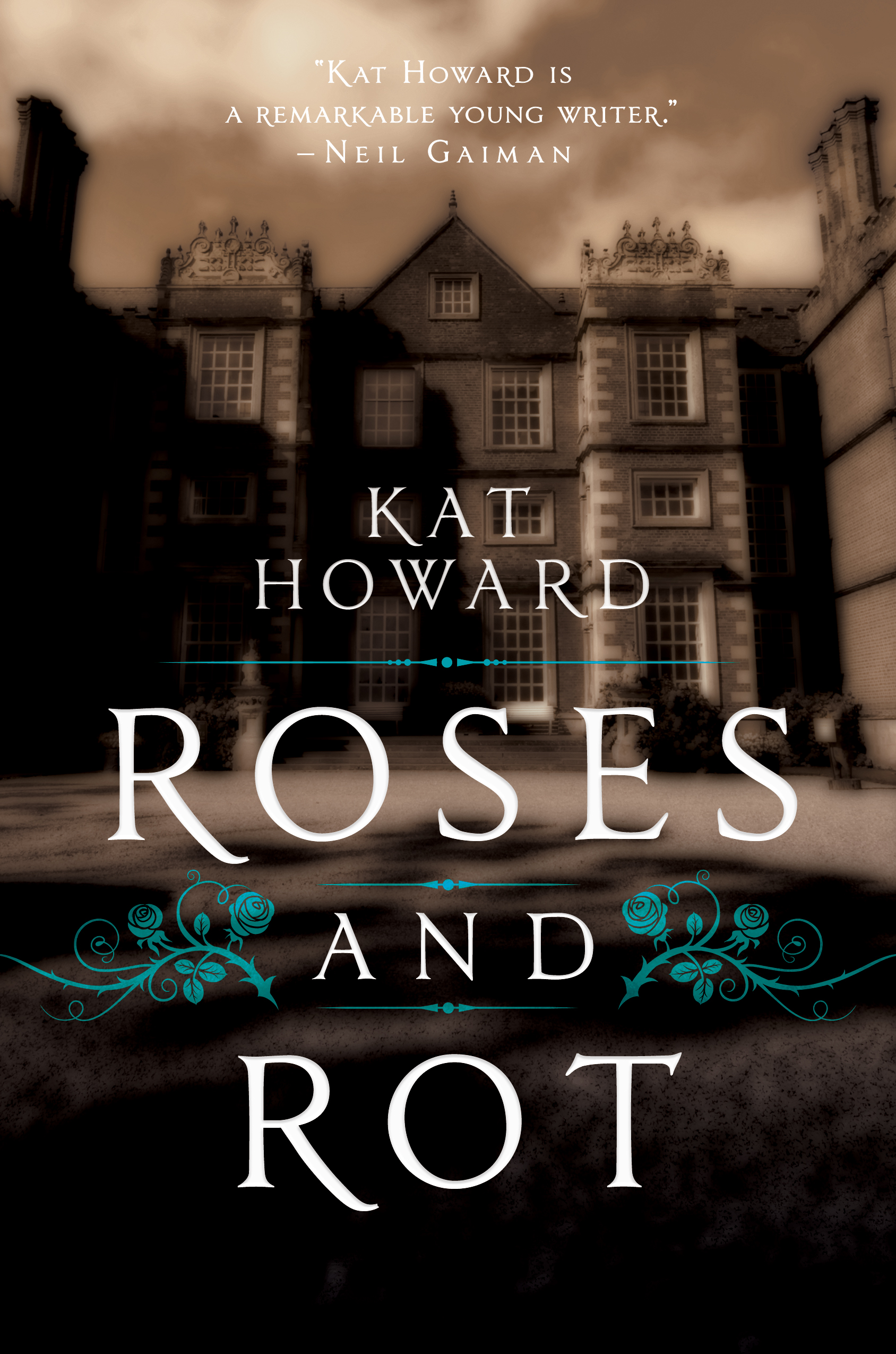My TBR spreadsheet entry for Kat Howard’s Roses and Rot just said TAM LIN WITH SISTERS, which, I mean, if y’all have been around for a little while, you’ll know that I am about Tam Lin retellings. In this one, sisters Imogen and Marin have won prestigious Melete residencies, which will allow them to work on their art (Imogen writes, Marin dances) with top-of-their-field mentors for a year. This is the first time the two of them have lived in the same place since Imogen fled their abusive mother’s house to attend boarding school as a teenager.

At first, Melete seems beautiful and perfect, if perhaps a bit strange in its architecture and atmosphere, but since the reader knows that All Is Not As It Appears, there’s moments when you think, Okay, okay, get going with the creepy shit already. But in general, Howard creates a wonderfully creepy atmosphere of the type that maintains plausible deniability: Artist weirdness, or magic? Deeply sinister signs that the whole shebang is controlled by semi-malevolent dark creatures, or creative people producing art that maybe makes you uncomfortable sometimes?
This makes for a slightly slow beginning, which I find is the nature of Tam Lin stories in general (why?) — lots of going back and forth between Carterhaugh and her father’s house before Janet gets to the fireworks factory — and it’s still satisfying from an emotional perspective to watch Imogen try to figure out who she is as a sister and a writer. When she begins to realize what she will have to sacrifice to save Marin, this emotional groundwork serves us in good stead. Howard made me feel all the emotions around creating art, fighting through imposter syndrome, being a sister, and being a daughter.
Here comes my one minor complaint, and it’s a spoilery one, so strap in: The concern is that Marin’s emotional fragility — born of years of emotional abuse from their mother — will make it impossible to survive her seven years in Faerie and make it out to win her prize of international renown. Imogen, therefore, has to either stop her from winning the Top Artist Prize basically, or — once Marin has won it, because of course — want Marin more than Faerie does.
This is all fine. Howard then goes for another twist of the knife, making a rule that if Imogen does stop the Faerie ritual from proceeding, all the fame and talent will come to her, instead of to Marin. Thus there’s no way for Imogen to do this thing without it appearing to be for selfish reasons; I.e., without it appearing to confirm the jealousy their mother has for years been assuring Marin that Imogen feels. After the ritual, though, Marin sees that it was all for her own good, and she and Imogen are fine.
Both of these things felt facile to me in a way that the rest of the book doesn’t. Howard grapples frequently with the scars — physical and emotional — the girls’ mother’s abuse has left on them, and it’s done with great respect and deftness. The thing about Imogen maybe getting all the glory doesn’t make plot sense and feels thrown in, plus even when Imogen makes that tough decision, there aren’t any repercussions for her relationship with Marin. Granted that I am a noted aftermath junkie, but I’d have liked to have seen some hard consequences for Imogen’s decision, and perhaps an ending where she and Marin have to rebuilt their trust.
As I said, it’s a minor complaint, and overall I thought this book was terrific, putting me in mind of Elizabeth Hand at her best and spookiest. Much recommended for the fall season!